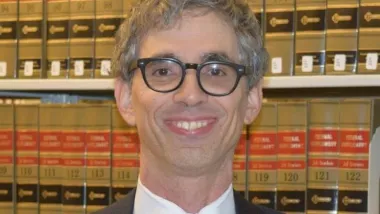Due to the collapse of local tax revenues caused by the national economic downturn, many transit systems may face shortages of money over the next year or two. Assuming this is the case, transit providers will have to either raise fares or reduce services by eliminating bus routes or otherwise reducing transit service. It seems to me that raising fares is generally the lesser evil, both from the standpoint of an individual rider and from the standpoint of the transit agency itself.
Due to the collapse of local tax revenues caused by the national economic downturn, many transit systems may face shortages of money over the next year or two. Assuming this is the case, transit providers will have to either raise fares or reduce services by eliminating bus routes or otherwise reducing transit service.
It seems to me that raising fares is generally the lesser evil, both from the standpoint of an individual rider and from the standpoint of the transit agency itself.
If an individual rider has to pay more to get on the bus, the rider is obviously worse off. But even so, that rider can still use the bus to get to work. By contrast, if the rider loses service entirely (or loses service at the times the rider needs to travel), then that rider is completely cut off from public transit. If this former rider cannot use a car (due to low income, age or disability) then he/she is essentially cut off from the labor force and from society- hardly a desirable result. If the former rider is a car-owning"choice rider", he/she will drive to work every day, creating pollution and clogging local highways - also an undesirable result.
Moreover, that rider may have relied on existing service, by choosing to live in area served by transit. By contrast, a rider is much less likely to rely on existing transit fares, since transit agencies periodically increase fares.
To be sure, transit agencies lose riders in the short run when fares are increased. But nevertheless, transit ridership will, in the long run, decay even more if services are reduced. If a rider decides to drive because gas prices are down and bus fares are up, the former rider might go back to the transit system if gas prices rise again, or if inflation erodes the fare increase a few years later. But if that former rider simply has no convenient bus route available, that rider is lost to the transit system forever. No matter how high gas prices are, a rider cannot take the bus to work if the bus doesn't go where he/she lives and works.
Of course, it could be argued that low-ridership routes should generally be cut back- and to be sure, service cutbacks are more defensible where routes are duplicative of other routes, or where cutbacks merely involve making a bus go every 20 minutes instead of every 15.
But the "let's cut the weakest bus route" argument proves too much: no matter how high or low a system's ridership, there will always be some routes with fewer riders than others. So if the route with the lowest ridership is cut every couple of years, eventually a city will have only one route- hardly a desirable result. Thus, every effort should be made to keep buses going where they already go, at times beyond the rush hour service typical of smaller systems.

Planetizen Federal Action Tracker
A weekly monitor of how Trump’s orders and actions are impacting planners and planning in America.

Chicago’s Ghost Rails
Just beneath the surface of the modern city lie the remnants of its expansive early 20th-century streetcar system.

Amtrak Cutting Jobs, Funding to High-Speed Rail
The agency plans to cut 10 percent of its workforce and has confirmed it will not fund new high-speed rail projects.

Ohio Forces Data Centers to Prepay for Power
Utilities are calling on states to hold data center operators responsible for new energy demands to prevent leaving consumers on the hook for their bills.

MARTA CEO Steps Down Amid Citizenship Concerns
MARTA’s board announced Thursday that its chief, who is from Canada, is resigning due to questions about his immigration status.

Silicon Valley ‘Bike Superhighway’ Awarded $14M State Grant
A Caltrans grant brings the 10-mile Central Bikeway project connecting Santa Clara and East San Jose closer to fruition.
Urban Design for Planners 1: Software Tools
This six-course series explores essential urban design concepts using open source software and equips planners with the tools they need to participate fully in the urban design process.
Planning for Universal Design
Learn the tools for implementing Universal Design in planning regulations.
Caltrans
City of Fort Worth
Mpact (founded as Rail~Volution)
City of Camden Redevelopment Agency
City of Astoria
City of Portland
City of Laramie






























